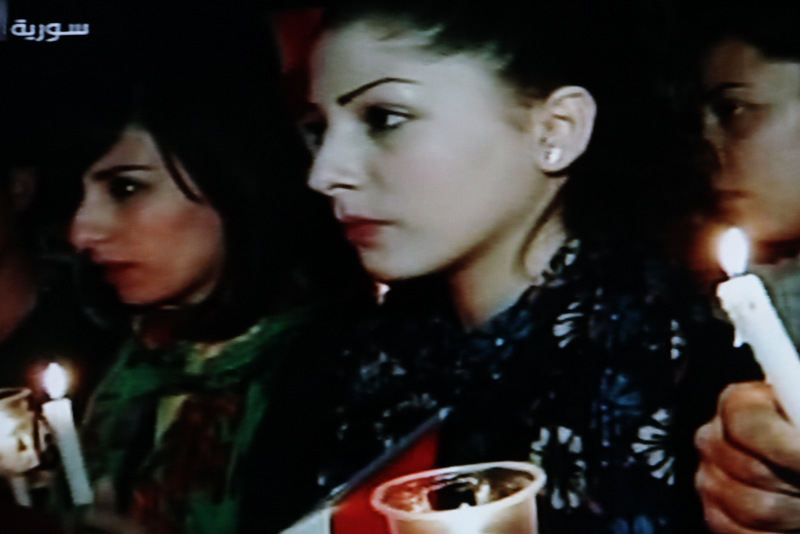This page has been set up to present links to articles or letters which question narratives on Syria that are not well sourced and which wittingly or unwittingly support war and terror.
*****************************************************************************************
The email below was sent to officials at the NTEU (National Tertiary Education Union) on 9 April 2013. It is in response to an article published in the March 2013 issue of the NTEU’s magazine.
*********************************************
Dear NTEU officials,
It is most disturbing that the March Advocate chose to print a news report from “University World News” on the explosions at Aleppo University. The January 16th article, by Brendan O’Malley, it is also noted, was written the day after the attack on the University before there was sufficient time to thoroughly investigate the cause of the explosions. It was a news report, not an investigation. Therefore, it relies mostly on claims and counter-claims, many made by anonymous sources, invariably people supporting the ‘rebels’.
The writer refers to an article in The New York Times, but doesn’t provide a date, an author or a reference. Robert MacKey writes on the incident in The New York Times one week after Brendan O’Malley’s article . MacKey is more intent on investigating the incident and on presenting the views of experts who have examined available evidence. His article seriously questions the initial claims that a plane bombed the university.
If the Advocate is interested in merely reporting on Syria and on events there which impact on students, it must also inform its readers of the 28 March missile attack on a cafeteria at Damascus Uni which killed at least 15 architecture students and injured many more. I have uploaded images onto the AMRIS webpage of Damascus Uni students who were protesting against that attack by ‘rebels’.
It is a great pity that the Advocate does not refer to the writing of Australians who are regarded as Middle East experts and who have written quite extensively on Syria since the beginning of the crisis. For example, Dr Jeremy Salt, currently an academic at a university in Turkey wrote about the assassination of a professor, her three children and her parents in their home. She was targeted by ‘rebels’ presumably because she supported the government. There have been numerous assassination of intellectuals and professionals across Syria.
One well-known targeted killing was that of a history professor from Aleppo and one of his students – the son of the Mufti of Syria. This is how terror is used to destroy a country and the spirit of its people. A prominent extremist cleric who has issued fatwas against secular Syria has assured his followers in 2011 that “it is OK to kill one third of the population of Syria if it leads to the toppling of the heretical regime”. The silence in the mainstream media about this indicates that Western governments have been complicit in attacks against the Syrian state.
Today, I posted on Twitter a report from a Russian journalist at the scene after a car bomb ripped through central Damascus. A local spoke to him and talked about the ‘fascist’ forces Syria is fighting.Considering the success of the propaganda of the fascist forces in Europe last century, one would wish that Australians would be much less eager to rush to support the claims of those who support war and terror in Syria.
Kind regards,
Susan Dirgham
National Coordinator of “Australians for Mussalaha (Reconciliation) In Syria” (AMRIS)
https://australiansforreconciliationinsyria.wordpress.com/
Note:
The Grand Mufti of Syria makes reference to Sheikh Qaradawi’s assurance that “it is OK to kill one third of the Syrian population” in a speech at his son’s funeral in October 2011: http://www.youtube.com/watch?v=wj0QmykxMQs
It is also referred to by a Lebanese Australian, Robert Bakhazi in an ABC Radio National Encounter program (The Syrian Mosaic), 3 March 2012: (Section from transcript below) http://www.abc.net.au/radionational/programs/encounter/the-syrian-mosaic/3855496#transcript
When it was mentioned by this writer in the SBS Insight program on Syria (October 2012), there were many Lebanese and Syrian Australians in the audience including people who supported the armed opposition and no one contradicted the statement. http://www.sbs.com.au/insight/episode/transcript/509/Syria
Images: Damascus University students at a vigil following the rocket attack on the university 28 March 2013.




